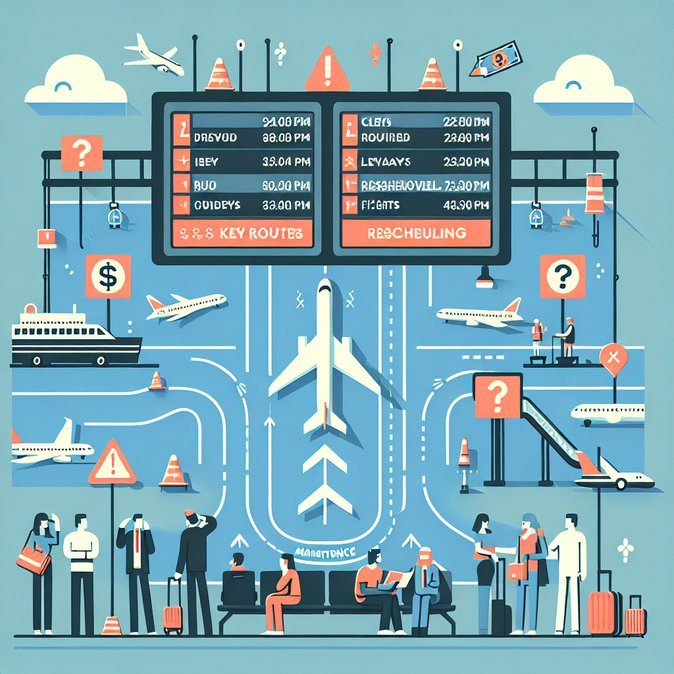
Both intersecting runways at Chhatrapati Shivaji Maharaj International Airport will close from 11 a.m. to 5 p.m. on 20 November for annual post-monsoon maintenance, forcing a complete halt to arrivals and departures. Although airlines received notice months ago and have rescheduled flights, passengers booking at short notice are facing sky-high fares—₹ 20,000 to ₹ 27,000 on popular domestic sectors—due to squeezed capacity.
Mumbai’s configuration leaves no secondary runway, unlike Delhi or Bengaluru, so any work at the intersection shuts the airport entirely. Maintenance teams will inspect pavement, lighting and drainage ahead of the winter peak. The operator says contingency slots have been allocated after 5 p.m., but analysts warn of ripple delays as diverted aircraft jostle for parking.
![Six-hour runway shutdown at Mumbai triggers fare spike and schedule reshuffle]()
Corporate travel managers should encourage travellers to re-time meetings or route via Pune or Goa. Firms with time-critical cargo may need to truck freight from Ahmedabad or Hyderabad. Looking ahead, the first runway at the new Navi Mumbai International Airport, slated to open next month, should give the financial capital badly needed redundancy.
From a mobility-policy angle the episode demonstrates the importance of dynamic fare caps. Companies that pre-approve flexible budgets tied to average market rates rather than fixed rupee limits found it easier to accommodate unavoidable premium fares this week.
Mumbai’s configuration leaves no secondary runway, unlike Delhi or Bengaluru, so any work at the intersection shuts the airport entirely. Maintenance teams will inspect pavement, lighting and drainage ahead of the winter peak. The operator says contingency slots have been allocated after 5 p.m., but analysts warn of ripple delays as diverted aircraft jostle for parking.

Corporate travel managers should encourage travellers to re-time meetings or route via Pune or Goa. Firms with time-critical cargo may need to truck freight from Ahmedabad or Hyderabad. Looking ahead, the first runway at the new Navi Mumbai International Airport, slated to open next month, should give the financial capital badly needed redundancy.
From a mobility-policy angle the episode demonstrates the importance of dynamic fare caps. Companies that pre-approve flexible budgets tied to average market rates rather than fixed rupee limits found it easier to accommodate unavoidable premium fares this week.







